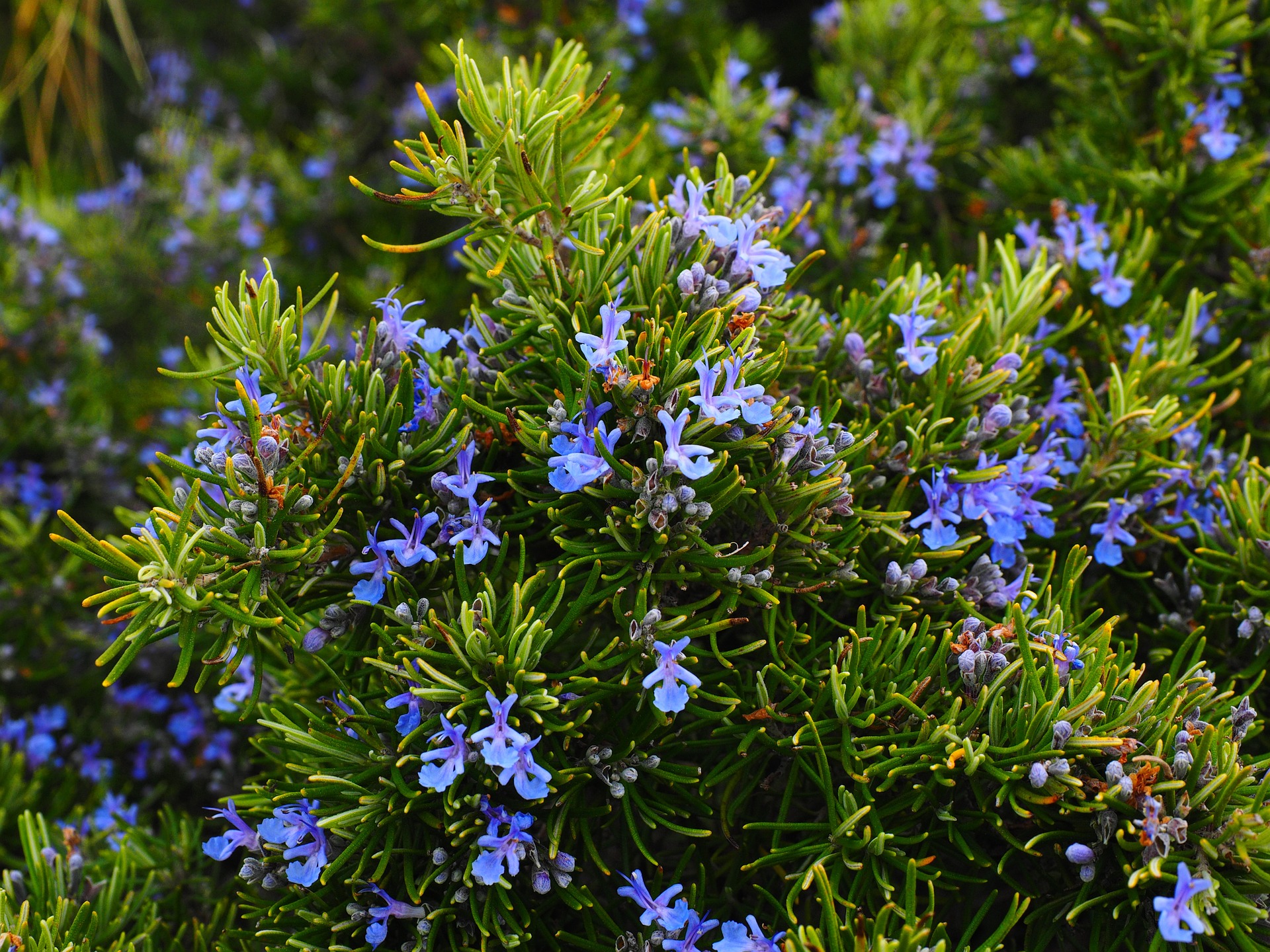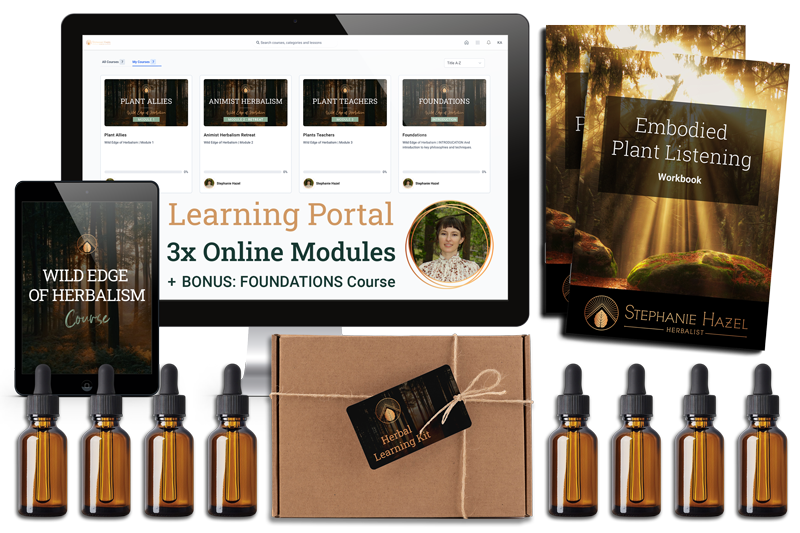
The Best 3 Herbs for Menopause
December 1, 2018In a busy, productive world, a well-performing brain can make all the difference between gliding through your days successfully, or feeling overstretched and overwhelmed.
Generally, we reach for caffeine and sugar when we feel the need for a boost in concentration or focus. If the booming cafe culture is anything to go by, they obviously do the job, but only for a short time and at a cost to general health and wellbeing.
Luckily for us, there are other herbs that can boost memory, brain power and concentration without depleting our bodies: some of them even start to repair damage to brain cells, having a truly long-term effect.
Brahmi, Rosemary and Ginkgo are common favourites, but two great concentration herbs that are often overlooked are Tulsi and Rhodiola.
They all help the brain, but in slightly different ways. Finding the best combination for your needs is the key to having the brain boost you desire.
But first, let’s unpack how the brain actually works.
The five ingredients for a happy brain
For the brain to function well, we need certain ingredients that let it do its job:
1. healthy, active neurons
Neuron is the technical name for brain cell. Neurons don’t regenerate as easily as other cells, and can be easily damaged by cigarettes, alcohol, pollution and heavy metals.
2. good blood flow
Blood feeds and irrigates the brain, and also removes waste materials. Healthy circulation can be stimulated through herbs, but also through exercise and handstands!
3. brain food: glucose and oxygen
Once the blood is in the brain, it needs to have the right ingredients to feed the brain cells. These are oxygen (watch out if you’re anaemic) and glucose. The brain is the biggest consumer of blood sugar – to keep your brain happy, it needs a stable supply of glucose. This is best supplied through complex carbohydrates and regular healthy snacks.
4. the right neurotransmitters
Neurotransmitters are those little chemical messengers that allow us to think and feel. Without enough acetylcholine, serotonin and dopamine (amongst others), the different parts of our brain can’t communicate properly with each other, and learning and motivation are reduced.
Choosing your magic herb combo
Thinking about which area of brain function may be a problem for you will help you choose the right herb. Generally we can do this by looking at other symptoms in our bodies.
Do you have poor circulation or anaemia?
Perhaps Rosemary and Ginkgo are your allies here.
Do you struggle to maintain stable blood sugars, needing to snack on sweet treats to keep focused? Tulsi might be the best choice.
Do you also suffer from depression and low mood?
Try Rhodiola, brahmi and rosemary.
Do you have alzheimer’s or dementia in your family?
Regenerate your neurons with rhodiola and brahmi.
Tulsi – the calming stimulant herb for mental fatigue
Tulsi, or holy basil, is considered the holiest herb in Ayurvedic medicine. It has an amazing reputation for curing a wide variety of ailments, but its concentration and brain-boosting effects are rarely talked about.
It has a significant effect on fatigue – by increasing the availability of glucose in the brain (Braun & Cohen 2015:994), stimulating nerve function and simultaneously calming stress it can combat ‘brain fag’ and help achieve the longed-for state of calm yet focused work.
Ginkgo for increasing blood flow and brain oxygen
Ginkgo is a classic brain herb, and supports brain function in three ways (Bone & Millls 2000:404):
- it increases blood flow to the head,
- it oxygenates the blood, and
- thins the blood, making it easier for the nutrients it carries to be absorbed into the cells
In a placebo-controlled clinical trial, the researchers found that combining ginkgo and rhodiola significantly improved the effects on short-term working memory (Al-Kuraishy, 2016).
Ginkgo is best taken as a support to a stronger herb like rhodiola, or if you have other signs of poor circulation. It shows its effects slowly and steadily, and is best taken long term.
Brahmi – the classic memory herb that protects your brain cells
Brahmi is the most well-known herb for memory, and it does deserve its reputation. Its strong antioxidant activity protects the brain cells from damage due to oxidative stress, heavy metals and cigarette smoking (Anbarasi et al 2005, Jyoti et al 2007).
We used to think that Brahmi’s brain-boosting effects was only from this neural protection, however, we now know that it is more than this: brahmi increases the release of neurotransmitters such as acetylcholine, serotonin and dopamine (Braun & Cohen 2015), thereby activating brain function. It also increases brain plasticity, helping you to learn new things (Preethi et al 2012).
The drawback of Brahmi is that noticeable changes in memory and brain function take 30 days of daily dosing to really take effect.
Rhodiola – the Viking herb that makes you smarter
Rhodiola’s other name is rose root, as the fresh root does indeed smell like roses. It’s been used in European and Central Asian medicine for over 2000 years, mainly for increasing performance and endurance in soldiers and warriors. The vikings even used it before going to battle (Darbinyan et al, 2007)!
Rhodiola has both a protective and a repairing effect on the neurons in the brain. Animal studies (Qu, Zhou, Zend, Li and Chung: 2009) have shown that it both protects against brain cell damage, and also regenerates brain cells.
Similarly to Brahmi, Rhodiola promotes the release of monoamine neurotransmitters in the brainstem, thereby increasing memory, attention and learning (Panossian & Wagner, 2005).
A bonus of this herb is that it has quick effects: animal studies have shown us that a single dose of rhodiola can increase learning and retention for 24 hours, and that long-term memory is improved after only 10 days (Al-Kuraishy, 2015).
Rosemary – immediate focus and memory boost
Perhaps because it is a common kitchen herb, poor Rosemary’s fantastic medicinal qualities are often overlooked, but this is the oldest European memory herb was considered such a good study herb that scholars in Ancient Greece graduated by being presented with rosemary wreaths.
By increasing blood flow and oxygenation in the brain, it stimulates brain function and is one of the best herbs for migraines. However, it has a unique quality: it is very effective as an essential oil inhaler, whereby it arrives directly into the brain and provides an immediate lift in focus and memory function. In fact, a 2003 clinical trial by Moss et al showed a 75% increase in memory just from inhalation of rosemary essential oil.
So do herbs make you smarter?
Popular opinion on brain function says that you can’t increase your IQ, but the people saying that obviously don’t know a good herbalist! Maybe you can’t become Einstein, but regular use of brain-boosting herbs alongside a healthy lifestyle can definitely increase concentration, motivation, learning speed and memory.
References:
Al-Kuraishy. 2015. Central additive effect of Ginkgo biloba and Rhodiola rosea on psychomotor vigilance task and short-term working memory accuracy. Journal of Intercultural Ethnopharmacology. 2015 Dec 22;5(1):7-13. doi: 10.5455/jice.20151123043202.
P Qu ZQ1, Zhou Y, Zeng YS, Li Y, Chung P. (2009). Pretreatment with Rhodiola rosea extract reduces cognitive impairment induced by intracerebroventricular streptozotocin in rats: implication of anti-oxidative and neuroprotective effects. Biomedical Environmental Science Aug;22(4):318-26. doi: 10.1016/S0895-3988(09)60062-3.
Panossian A, Wagner H. (2005). Stimulating effect of adaptogns: an overview with particular reference to their efficacy following single dose administration. Phytotherapy Research 19(10).
Darbinyan V et al. (2007). Clinical trial of rhodiola rosea L. extract SHR-5 in the treatment of mild to moderate depression. Nordic Journal of Psychiatry 61.5: 343–348.







